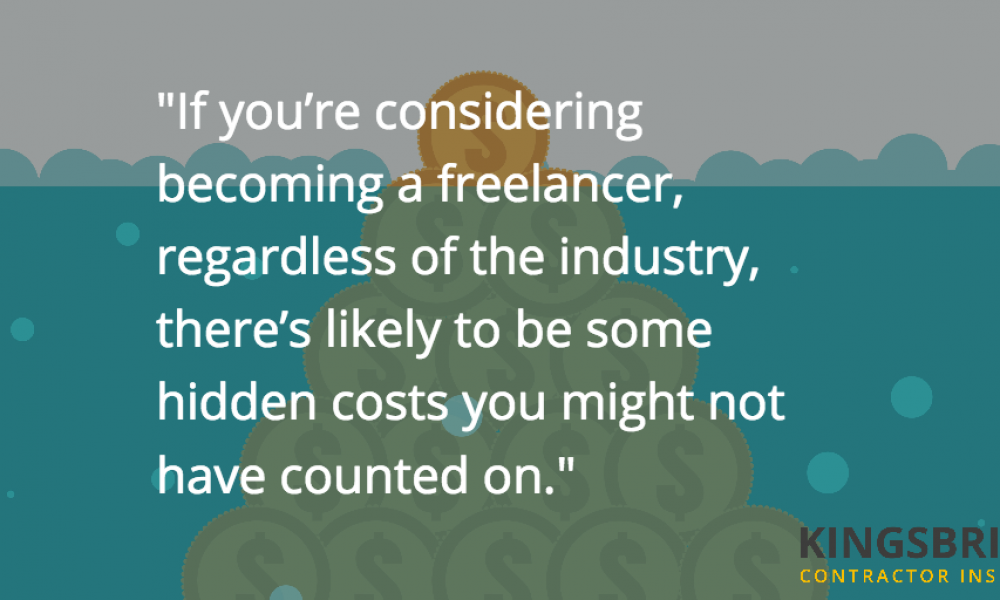How to avoid January self-assessment stress
January is well and truly upon us. Most of us have completed our first full week back in work and…
If you’re considering becoming a freelancer, regardless of the industry, there’s likely to be some hidden costs you might not…

If you’re considering becoming a freelancer, regardless of the industry, there’s likely to be some hidden costs you might not have counted on when you first started out.
As a freelancer your overheads will be low. With no business premises and no employees, all you seem to have to pay out for initially are the fees that come with putting together a website (alongside some small marketing costs).
But what about the other potentially financially perilous situations you may not have considered?
Keeping on top of the latest trends impacting your industry is crucial when it comes to staying afloat in the competitive freelance market. Whether it’s a new course you take or a free course you sign up for online you’re still going to be spending time completing it. And you know what they say – time is money!
It’s important to locate the most beneficial courses for you before you commit to anything unnecessary. There are many free resources out there so just be sure that the course is worth the money and time you’ll spend completing it before you part with your hard-earned cash.
If you give bad advice to one of your clients and they lose money as a direct result of it, there’s always a chance they could sue your freelancing business. That’s why it’s important to invest in an adequate freelance insurance package.
If you’re not insured your legal costs can mount up and quickly become unmanageable.
Although your travel costs (including mileage) can become a tax-deductible expense, you’ll still have to pay for them initially. It might not seem like a sum that will break your budget, but if you start travelling here, there, and everywhere for client meetings it soon adds up.
If travelling is an unavoidable business expense, just make sure you’re always keeping track of your costs so you can budget for them in advance.
You might already have access to a laptop or a computer, but what happens if it breaks and needs repairing? Technology can become very expensive to fix or replace, and the amount of time it can cost you can be very stressful.
Make sure you’re always able to make client deadlines by using cloud computing software to store documents. Google Drive is a popular choice amongst the freelance community. Not only will you reduce the risk of losing work, but it means if your laptop does need to go in for repairs you always have the chance to access your work on, say, a library computer just as easily.
Being able to meet your clients’ deadlines is imperative to building a good reputation for your freelance business. It pays to have a backup plan!
Being unwell and taking a few days off or taking a break with a summer holiday means you can lose money very quickly. This can become the downfall of many freelancers.
Organisation is key when it comes to taking time off for holidays, but when you’re ill it’s usually without warning. Aside from delivering work from your sick bed, you need to ensure you’re prepared financially for these situations.
If you take on any extra work above and beyond your normal workload, it’s a good idea to put it in your savings. Then if you really need to take a day off for whatever reason, you have some rainy day money to fall back on.
If you are considering purchasing freelance insurance, we offer a cost-effective and market-leading solution. See more about what insurance packages we have on offer here.